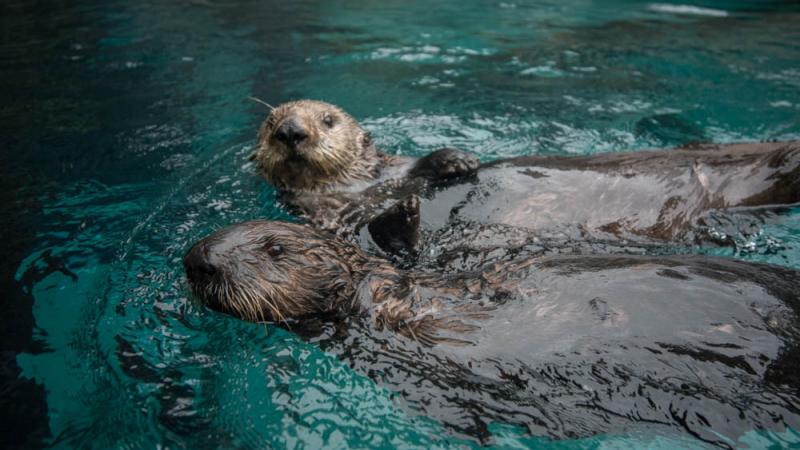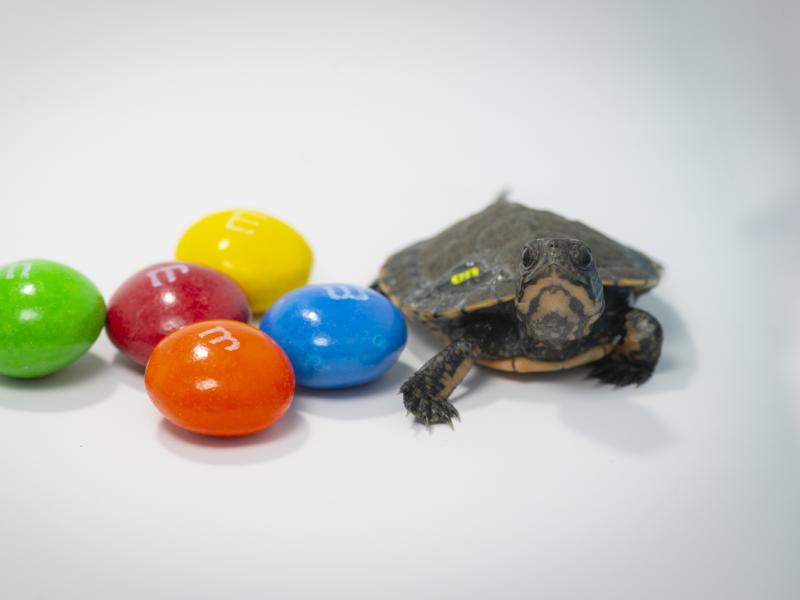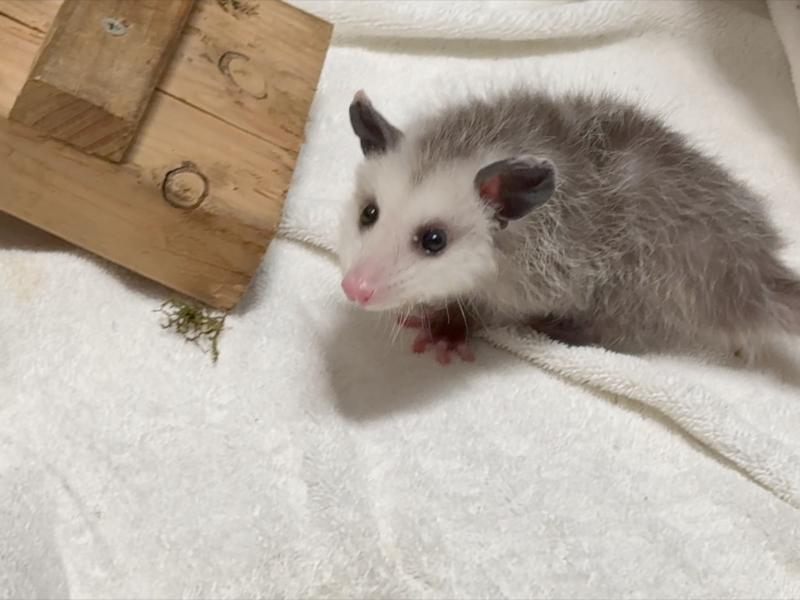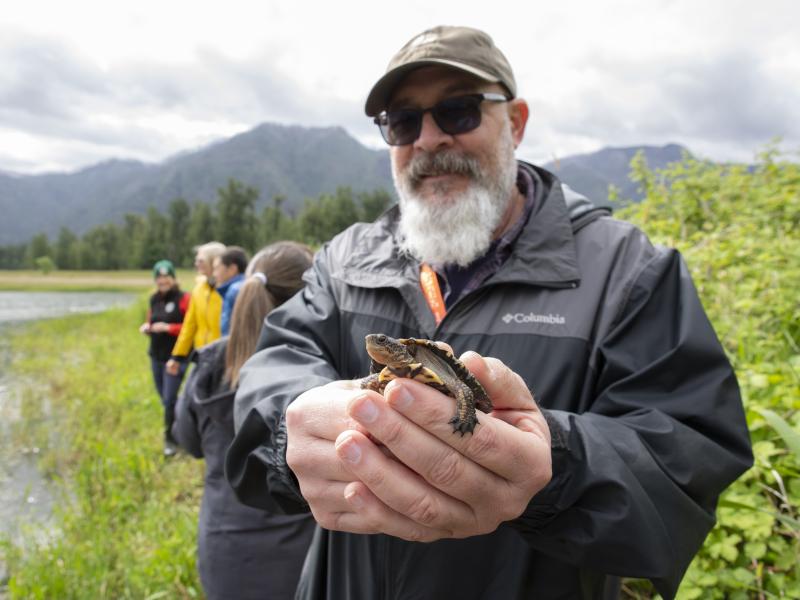Rescued sea otter pup 'Uni Sushi' makes her zoo debut

Playful 5-month-old meets Juno and Lincoln at Oregon Zoo's Steller Cove
Visitors might notice more splashing than usual at the Oregon Zoo's sea otter habitat this week. Uni Sushi, the rescued pup who arrived earlier this month, had her first meet-up with the zoo's other otters — Juno and Lincoln — and the three got along so swimmingly they can now be seen together much of the time.
"The introductions went very well," said Nicole Nicassio-Hiskey, the Oregon Zoo's senior marine life keeper. "They just hit it off right away and seem to enjoy one another's company."
Keepers say Juno's maternal instincts kicked in as soon as she met Uni — much as they did last year with Lincoln — and she hugged the young pup close and floated all around with her. Lincoln soon joined the pair, greeting them with a chorus of squeaks, and all three have been playing together since.
Visitors can tell the otters apart by their size and coloring. Uni is smaller than Juno and has rich brown fur over her entire body, whereas Juno's fur has begun to turn white around her face and neck. Lincoln is brown all over but is much larger than the new pup.
Found stranded on a beach near Santa Cruz in December, Uni was brought to the Monterey Bay Aquarium's rescue and care program as a tiny pup. Unable to be paired with a surrogate mom, she was eventually deemed non-releasable by the U.S. Fish and Wildlife Service.
The marine mammal care team named the pup "Uni Sushi" (uni is the Japanese word for sea urchin), in honor of the diet of sustainable seafood she and the rest of the sea otter family enjoy. Because of their high metabolism, sea otters eat about 25% of their weight in clams, crabs, shrimp, sea urchins, mussels, squid and fish each day.
Sea otters, once abundant along the Oregon coast, were hunted to extinction here in the early 1900s and have not established permanent residence in the state for more than a century. A few visiting otters have been sighted in recent years, notably in Depoe Bay in 2009. Though currently protected from hunting by the Marine Mammal Protection Act of 1972 and the Endangered Species Act of 1973, they continue to be threatened by oil spills, fishing nets and infectious diseases.
Sea otters are considered a keystone species and play critical role in the Pacific Coast marine ecosystem, promoting healthy kelp forests, which in turn support thousands of organisms.
More News

Tiny Endangered Turtle Hatchlings Arrive At Zoo
Seventeen northwestern pond turtle hatchlings, each about the size of a walnut, are making themshellves at home at the Oregon Zoo this summer.June 4, 2025

Awesome opossum! Orphaned baby finds new home at zoo
A tiny opossum found wandering earlier this month has made his way to a new home at the Oregon Zoo.May 28, 2025

Zoo, partners return 19 endangered turtles to wild
Zoo-reared northwestern pond turtles are released in the Columbia River Gorge It was a shell-ebration last week for 19 northwestern pond turtles reared at the Oregon Zoo. In addition to partners from the Washington Department of Fish & Wildlife and U
May 19, 2025

